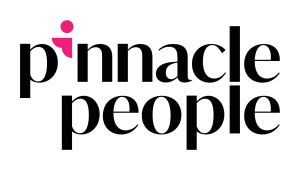Hard work, fast-paced environments and long anti-social hours with no work life balance; this is the life many hospitality workers can lead. There is no wonder why we see mental health issues dominate in this industry. The most prevalent concerns we see within hospitality workers are feeling depressed, anxious or manic. A recent survey commissioned by suicide prevention charity, R U OK? indicated that around 50 per cent of hospitality workers in the last year said they wanted someone at work to ask them if they were okay. Is it as simple as asking a question or starting a conversation? How can we bridge this gap in hospitality, to let workers know it is okay, to not be okay?
With the long hours that come with hospitality, a cohesive team is one of the most important factors in a kitchen or in a restaurant environment. This atmosphere can become a home for someone or it can become a prison. Having a support network around you is important in any situation and the people you spend the most time with, by default, may need to be that support. The issues do not always stem from the workplace. Depression and mental health issues may not initiate from making a mistake at work but other factors in a person’s home life.
The lack of an outside social life may lead a person to suicidal thoughts or substance abuse in the hours outside of the workplace. Having been in the hospitality industry for [years], I understand the long hours and pressure that comes with the environment. After seeing family and friends struggle with mental health issues and alcoholism for many years, I decided to form The Kettle Foundation. The not for profit origination was set up to support hospitality professionals battling with alcoholism. The foundation provides much needed funding for education, support and rehabilitation.
There has been a rise in awareness for mental health in hospitality and in general. It is a really important topic and the more we talk about it, the less the stigma around it becomes. Many companies have or are applying Employee Assistance Programs which include counselling for work related or personal issues. Other implementations can include, talking one-on-one with managers, taking time off when needed, changes to shift times and accessing EAPs without fear of repercussions or stigma. There has also been a rise in workshops across Australia for employees and employers to gain insight into mental health and how we can combat it in the workplace.
As always in hospitality and in any industry, start from the top! If management start asking the question “are you okay?” to each of their staff on a weekly basis, the team may feel more comfortable in following suit. The more discussion around mental health, the more awareness there is. Workplaces in any field should be implementing and presenting support systems for their workers. Renowned for its unforgiving nature, the hospitality industry has come a long way in terms of support networks and awareness but this still need to go further!
Start the conversation around mental health and the stigma around it will lessen. We hope to see employees struggling with mental health, gain the support they need, across all industries. It may be problematic to reduce the pressure surrounding hospitality fields as it is a very fast paced and ad hoc industry. This does not mean we can’t increase the aspects that oppose this pressure. Start the conversation today and ask your colleagues and staff, “are you okay?”

